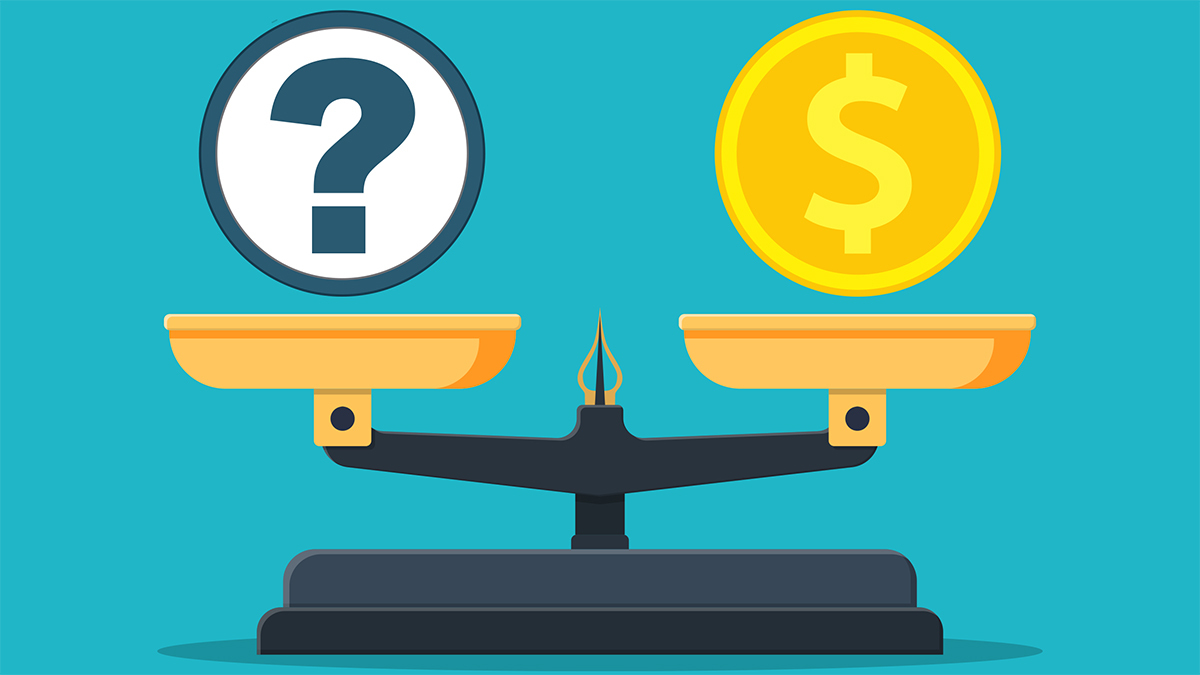Get our independent lab tests, expert reviews and honest advice.
5 simple tips to reduce your cost of living

In the current cost of living crisis, more and more households are struggling to make ends meet.
On this page:
- 1. Switch, downgrade or prepay your health insurance
- 2. Take a fresh look at your utilities
- 3. Renegotiate and refinance your loans and credit cards
- 4. Review your monthly outgoings
- 5. Ask for help
In fact, our most recent national Consumer Pulse survey revealed that almost all Australians (94%) are dealing with increased costs, with about one quarter (24%) finding it hard to make ends meet on their current incomes.And while cutting out non-essential purchases can be one way to save money, there are also plenty of ways to save on the essentials.Our experts recommend looking at these simple ways to reduce your yearly outgoings.
Plus, get more cost-cutting ideas from CHOICE’s top money-saving tips.
1. Switch, downgrade or prepay your health insurance
Health insurance premiums increased by about 2.7% this year, with some funds delaying their price increases until later in the year, such as Bupa, NIB and HCF delaying their premium price increases to 1 November, which may offer some relief if you’re a customer.
However, if you haven’t looked for a better deal on your health insurance lately, now is a great time. Our research shows you can save up to $935 a year on hospital cover by switching to a similar policy with a different provider. You can also find out how to get a discount on your health insurance.
Downgrade your cover
You could also consider downgrading your cover to save money – for example, if you’ve been paying for pregnancy cover (Gold or some Silver Plus) and you’re not planning on having any more children, you could downgrade to a cheaper Silver Plus or Silver policy that doesn’t include pregnancy. If you’re paying for Extras insurance that you don’t use, you could also consider dropping that to make instant savings.
Prepay your annual premium
If you have a lump sum of cash available, paying your annual health insurance cost in one go before those prices go up means you lock in your old price for at least another year, which could save you hundreds in the long term. Your health fund will let you know your policy’s actual increase before it takes effect, so look out for any communication from them.
Opt for a higher excess
An excess is a contribution towards each hospital stay that you can choose to pay to reduce your premiums. If you feel you’re not likely to go to hospital in the next one or two years (for an elective surgery, for example) opt for a higher excess of $750 to reduce your premium. Find out more on how to save on health insurance.
2. Take a fresh look at your utilities
Ask your utility providers for relief
Many utility providers launched relief measures in response to the COVID-19 pandemic and increases to cost of living, and now have regular hardship policies. Some providers, such as Energy Australia and AGL, currently let you request a payment extension online or set up a payment plan. If you’re struggling to pay your utility bills, talk to your provider.
Check the rates you’re paying – could you switch?
If you haven’t reviewed your gas or electricity plans lately, chances are you could be paying less elsewhere. Find out more about how to find a better electricity plan and switch retailers.
Reduce your use of energy-guzzling appliances
Be wary of appliances around your home that can contribute significantly to your energy bills. Find out more about which energy-guzzling appliances are costing you and consider reducing their use.
Investigate solar and appliance upgrade rebates
In more of a long-term cost-saving measure, there are various schemes and rebates available to help Australians invest in more energy-efficient appliances in order to tackle pricey power bills.
There are various schemes and rebates available to help Australian invest in more energy efficient appliances in order to tackle pricey power bills
For example, under a new scheme, the NSW government is offering low income households currently receiving energy bill assistance rebates the chance to forego those payments in return for a solar system or energy-efficient home improvements. Find out more about the new scheme, as well as rebates available in other states.
CHOICE experts share top money-saving tips
3. Renegotiate and refinance your loans and credit cards
Renegotiate your home loan or small business loan
Talk to your bank about any relief options that are available, and if there’s the possibility of deferring repayments or reducing rates and fees. You could also consider refinancing the loan and switching lenders to get a better deal.
Check your credit cards
Now is the time to look at the interest rates and fees you’re paying on your credit cards and cancel, switch or consolidate your debts to get a better deal. Call your bank and ask for a reduction on your interest rate, or put together a plan for how you can best pay off your debts. Be cautious of credit cards advertising balance transfers. Read more about choosing the best credit card and how to avoid falling into debt.
Be wary of predatory lenders and buy now, pay later (BNPL)
Quick-fix solutions for financial problems are not always as attractive as they may first appear. It may be tempting at this time to take out a quick loan, but CHOICE finance advocate Patrick Veyret warns of the dangers of payday lenders.
“Payday lenders will be seeing this crisis as an opportunity to take advantage of people,” he says. “They offer predatory credit with interest charges regularly in excess of 400% per annum. They prey on people who fall on hard times, trapping them in a cycle of debt.
“If you are in financial hardship, we recommend you reach out to a free financial counsellor by calling the National Debt Helpline on 1800 007 007.”
Payday lenders offer predatory credit with interest charges regularly in excess of 400% per annum. They prey on people who fall on hard times, trapping them in a cycle of debt
Patrick Veyret, CHOICE finance advocate
Also, remember that services that let you get hold of part of your salary early are actually credit products, meaning you’ll pay back more than you originally borrowed. Consumer advocates have told CHOICE that they’re concerned that these products, along with BNPL services, can create potential debt traps for people who are already struggling financially.
Look into the No Interest Loan Scheme (NILS)
Instead of using these products to pay for an essential service, you could consider applying for the No Interest Loan Scheme (NILS). In the words of the government’s Money Smart website, NILS gives people on low incomes “access to safe, fair and affordable credit. Loan amounts are up to $1500 for essential goods and services such as fridges, washing machines or car repairs”.
4. Review your monthly outgoings
Looking at where your money goes each month, listing your regular outgoings and ranking them in order of necessity, from must-have to nice-to-have, can all help you see where you can potentially make savings.
There are also free online budgeting tools available, such as the one from MoneySmart, which gives tips on how to put a budget together, track your spending, and get by on a low income. Cutting back on even one small, frequent expense, such as takeaway food or coffee, can make a surprisingly big difference.
5. Ask for help
If you find yourself being overwhelmed by bills, you’re not alone. But there are free resources and services that may be able to help you.
Ask about hardship policies
If you’re struggling to keep up with utility bills or insurance premiums, a good first step is to talk to the company billing you. Many of these companies have hardship policies for people doing it tough. Explain your situation and see if they can help you by setting up a payment plan or giving you an extension to pay.
If you’re having trouble reaching an agreement with your retailer regarding energy or water bills, you can get support from your local ombudsman.
Speak to an independent financial counsellor
The National Debt Helpline offers free, confidential financial counselling to help people manage their debts and get their finances back under control. It’s a nonprofit community service that’s available to anyone in financial difficulty.
You can contact them via their website at ndh.org.au (where they also have resources for dealing with debts) or by calling 1800 007 007.
Look into government assistance
State, territory and federal agencies offer various programs to help people on low or fixed incomes who are struggling to pay their bills. Find your local authority and see if you’re eligible for payments on the federal government’s MoneySmart website.





